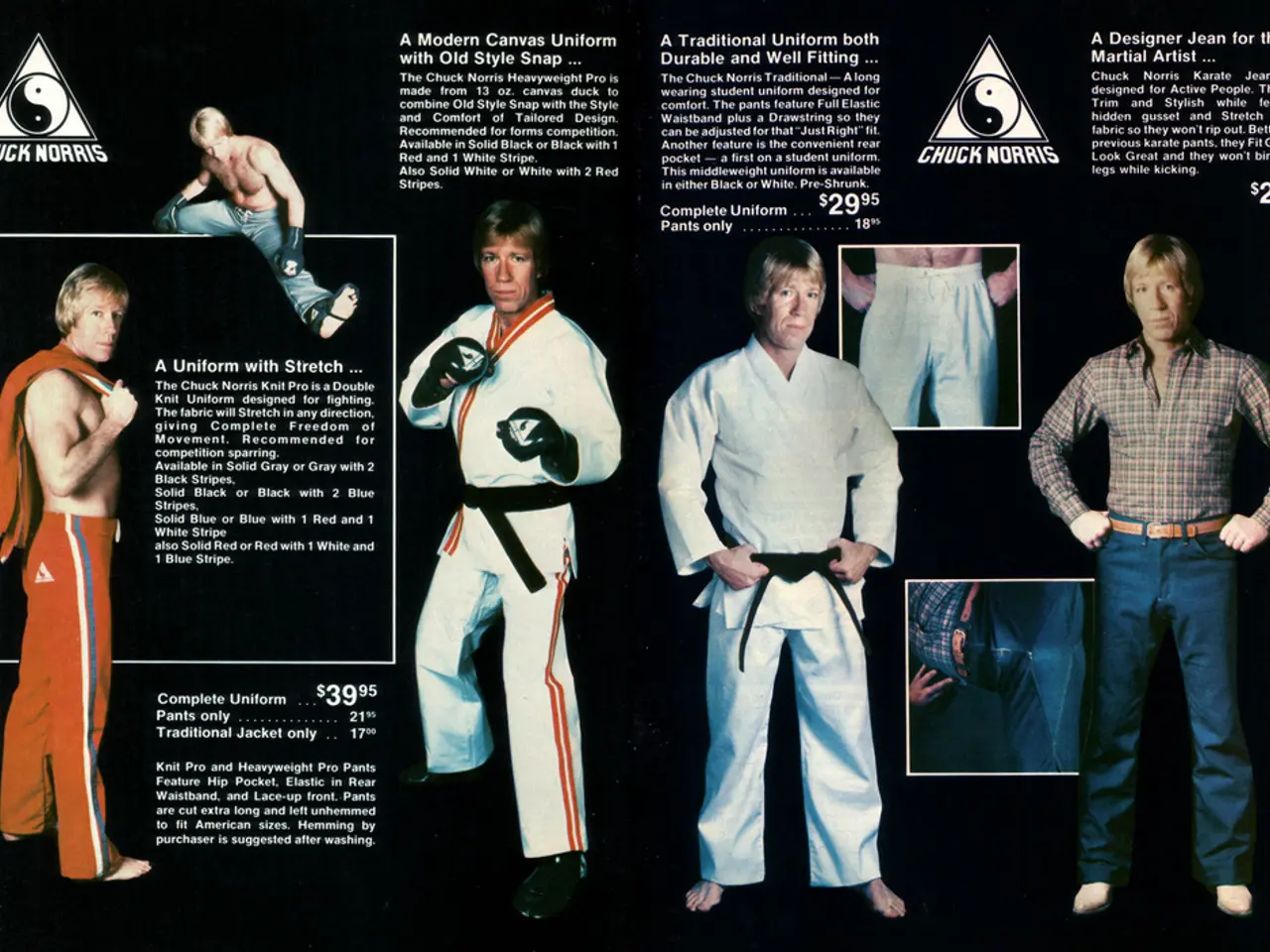Four Common Blunders in Weight Loss Among Men Aged 50 and Above
In the pursuit of losing fat, men over 50 often face unique challenges. From misunderstanding their body's needs to adopting ineffective workout routines, various factors can hinder progress. This article aims to shed light on common mistakes and provide practical solutions for a more successful journey.
Mistakes to Avoid
- Confusing thirst for hunger, leading to unnecessary calorie intake.
- Using food to soothe emotions, causing overeating.
- Eating while standing or distracted, making it harder to recognize fullness.
- Eating directly from bags or containers without portion control.
- Skipping meals, disrupting hunger-regulating hormones.
- Not understanding macronutrients, especially insufficient protein intake.
- Going to social events hungry, prompting overeating at gatherings.
- Random snacking throughout the day instead of eating structured meals.
- Obsessing over the scale rather than body composition and consistency.
- Poor sleep and unmanaged stress, which hinder weight loss progress.
- Relying on supplements instead of calorie deficit and consistent nutrition and exercise.
How to Avoid These Mistakes
- Stay hydrated but distinguish between thirst and hunger.
- Manage emotional eating by finding alternative coping mechanisms.
- Eat mindfully—sit down and focus on your meal to better register satiety.
- Portion your food rather than eating directly from the package.
- Never skip meals; rather, eat regular, balanced meals to regulate hormones.
- Prioritize protein intake to preserve muscle mass and increase satiety.
- Prepare for social events by eating beforehand to reduce overindulgence.
- Plan meals and snacks to prevent random overeating.
- Track progress using mirrors and measurements, not just the scale.
- Prioritize quality sleep and stress management to support fat loss.
- Focus on creating a sustainable calorie deficit through diet and exercise, rather than relying on supplements alone.
Research suggests that reducing daily calorie intake by 500-750 calories, combined with a higher protein diet and whole, nutrient-dense foods, helps promote satiety and fat burning [1][2][3][4][5]. Consistency and commitment to these lifestyle changes are key, as "dipping toes in" or short-term focus undermines results [3].
Focus on Smarter Habits
While long, steady-state cardio burns calories now, it doesn't build muscle that keeps metabolism high. Instead, aim for 30 grams of protein per meal, minimum, and prioritize quality reps, full-body compound movements, and rest days. High cortisol levels make it harder to burn belly fat, so prioritizing relaxation can help with fat loss.
After 50, smart training matters more than hard training. Fat loss after 50 doesn't stall due to age, but due to approach. Muscle is a metabolically active tissue; if you're not lifting, you're losing it. Strength training helps hold on to lean mass, a key to burning fat even when resting. Leaving the ego behind is important in training after 50.
With the right plan, the body is still capable of getting lean and staying there. After all, age is just a number, and with the right approach, it need not be a barrier to achieving your fitness goals.
[1] https://www.ncbi.nlm.nih.gov/pmc/articles/PMC5450869/ [2] https://www.ncbi.nlm.nih.gov/pmc/articles/PMC6017986/ [3] https://www.ncbi.nlm.nih.gov/pmc/articles/PMC6296573/ [4] https://www.ncbi.nlm.nih.gov/pmc/articles/PMC6251087/ [5] https://www.ncbi.nlm.nih.gov/pmc/articles/PMC5726115/
- In the pursuit of fitness and weight loss, men over 50 should avoid confusing thirst for hunger, as it can lead to unnecessary calorie intake.
- To further improve weight loss efforts, it is essential to focus on smarter habits in fitness-and-exercise, such as reducing daily calorie intake by 500-750 calories, incorporating a higher protein diet, and prioritizing quality sleep and stress management [1][2][3][4][5].
- Developing consistent and effective workout routines is crucial in the health-and-wellness journey, and this may include incorporating strength training, full-body compound movements, quality reps, and rest days.
- Age doesn't have to be a barrier to achieving fitness goals, as the body remains capable of getting lean and staying lean with the right approach to diet, exercise, and lifestyle changes [1][2][3][4][5].
- In order to successfully lose fat, men over 50 must avoid common mistakes like going to social events hungry, random snacking, and poor sleep and unmanaged stress, as these can hinder weight loss progress.




